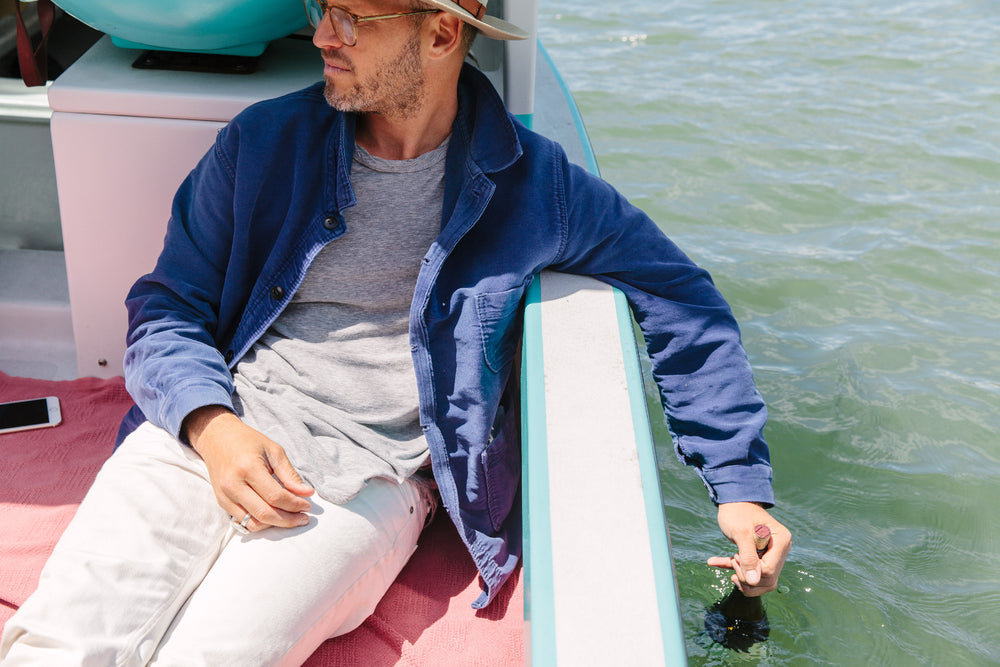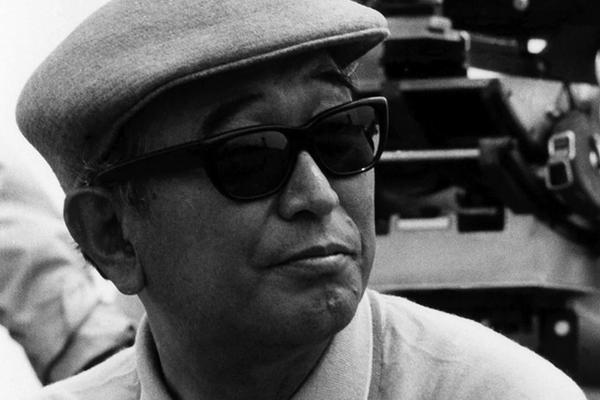Sometimes you come across people, places, experiences, or conversations that you terribly want to recreate, even if not for yourself, at least for someone else. Whatever it was that you felt — wonder, awe, connection — there was something about it that interrupted the way you lived and made you see with fresh eyes again. Interviewing Scott Trattner is like that. I wish you were on the phone with us, listening in on how he spoke about earnestness in such an earnest manner that it left me wondering how I could retell it to you.


Scott is humble, though his credentials could afford him otherwise. He’s the Executive Creative Director of Facebook and previously held the same position at TBWA\Media Arts Lab. His team created iconic Apple ads like "I’m a Mac, I’m a PC” and the silhouetted iPod dancers. He’s an artist in the more traditional sense, earning degrees from SF Art Institute and UCLA. He’s also built a boat, dabbled in house design as a self-proclaimed “wannabe architect,” and photographs frequently. Despite the humble-brag potential of his accomplishments, what comes across is how tirelessly and totally he approaches life with art.


“I’ve heard some people explain that creatives make art because of an inner brokenness. Personally, I make work because I can’t help expressing in these ways. I try to find my own take on things.” Trattner is a workaholic with an insatiable need to create. Forget any notions you have of an over-stressed, insular Bay Area techie. Instead, Trattner finds a “perfect cycle” of family, the outdoors, surfing, biking, and inspiration for his work. For example, he’s continually drawn to photographing the ocean as a way of exploring its expansiveness, which provides contrast to his highly packed schedule. Even with the necessary rigor that his job calls for, which is essentially being “responsible for how Facebook as a brand expresses itself in the world,” Trattner makes it a point to set aside those moments of feeling under the gun. The act of setting up safe creative spaces allows him and his team to continue making things that simply “tap into something truthful, something very deeply human, and approach it with artistry.” His obsession with honesty is a reaction to the observation that people “put up a lot of walls to keep ourselves safe — I’m not saying I don’t do it, but human beings are very challenged with expressing ourselves.” Thus, the work that he and his team have created, and will continually create, addresses those pivotal moments of breaking down barriers.

This vulnerability is most evident in the recent Facebook film series “Friends,” created by Trattner's team and directed by Mike Mills (Beginners, Thumbsucker). The triptych explores friendship in all its nuanced complexity, each piece a collection of thoughtfully compiled vignettes: shots of the quotidian, the monumental, and everything in between. There are blinks of teenage hijinks late at night; shocked looks exchanged during a car’s mid-swerve; private tears shed in public. There is the speechless joy of a bridal party and the familiarity of simply hanging out in a living room; there is the tension of telling it like it is. The films portray life in its bittersweet, multifaceted nature. It’s hard not to feel a point of connection with the array of scenarios, characters, and geographies that the stories span. “If you look at the scripts, they’re actually written with a very dark and a very light side; it isn’t all rosy,” Trattner explains. “We see a lot of artifice in advertising, in feature films,” but what interests the team is how they can rather “tell an honest, poignant, deadpan story that moves someone. We try to be raw and open, to not approach it like an advertisement, but to express something truthful on behalf of people.” These are slices of life, or close versions of them.




“I want it to feel like humanity,” Trattner envisions for his Facebook pieces. “Because in many ways, what happens everyday on Facebook is this beautiful humanity. If you really look at what’s happening on the day to day, it’s all of your friends expressing life.” The product was designed to be a simple, elegant container to house the things that mean the most to you: your friends, your family. “Somewhere along the way, people don’t understand it as that.”
The thing about Trattner, though, is that his fascination with humanity allows him to see things as they are without tinges of cynicism, especially in regards to social media. It isn’t naivete; though he’s aware of the critics who question the medium’s value, Scott finds its brevity influential. “It’s amazing how few gestures you need to make something that is special, timely, and moving. You see a simple post and it stops you in your tracks. It sticks around or it doesn’t, but it still has an effect on you.” He suggests that maybe people are taking it for granted, citing Louis C.K.’s sketch where “someone complains about the Internet not working on an airplane— is like, ‘For fuck’s sake! You’re at 30,000 feet! And you have Internet! So what if it’s slow!’” The anecdotal reminder serves to show that social media, and Facebook in particular, “is almost like electricity. You just turn on the light, and the light’s on, and you’re not wondering how the light is on. They’ve created this thing that connects people so effortlessly and beautifully.”


As our conversation winds down, Trattner gives a glimpse of what it takes to articulate with such seamlessness. “For our upcoming series of films, we actually cast everyday people, non-actors, through auditions that were basically conversations....We picked them based on seeing if they’d show us a bit of themselves, you know, let us in.” I like that. After all, it only makes sense that a life lived without walls is one that you can actually make art with.



